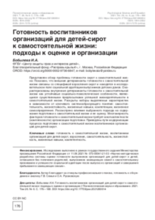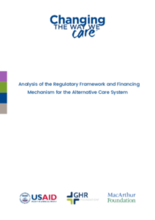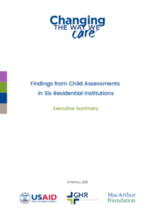Demographic Data
|
Sources: World Bank, UNDP, UNAIDS, DHS 2013 |
Displaying 2141 - 2150 of 14391
Register now for #BICON2021 and join this first of its kind regional forum to discuss ways in which organisations and countries can collaborate to strengthen the rights of children in Asia while preventing family separation. Find out more about this virtual event hosted 8th & 9th December.
The views and experiences of foster carers and services have been published in a new State of the Nation's Foster Care 2021 report from The Fostering Network. The findings are based on a survey of foster carers and fostering services across the UK.
This webinar, co-hosted with the Martin James Foundation, explores lessons learned in the development and strengthening of foster care systems in a number of countries and contexts, including emerging foster care systems in Bulgaria, Uganda, Cambodia, and Bangladesh as well as the more established foster care system in the UK, with a view to examining challenges and successes in implementation.
This webinar, co-hosted with the Martin James Foundation, will explore lessons learned in the development and strengthening of foster care systems in a number of countries and contexts, including emerging foster care systems in Bulgaria, Uganda, Cambodia, and Bangladesh as well as the more established foster care system in the UK, with a view to examining challenges and successes in implementation. The webinar will be moderated by Rebecca Smith, Global Head of Child Protection Programmes, Save the Children International.
The purpose of this event series is to bring care experienced people and supporters from all over the world together to connect, expand and create new ideas for change. The Uganda Care Leavers Organisation (UCL) will lead this presentation.
Представлен обзор проблемы готовности сирот к самостоятельной жизни. Показано, что внешние детерминанты готовности к самостоятельной жизни связаны со спецификой взросления сирот и находятся в исследовательском поле социальной адаптации выпускников детских домов.
Low readiness for independent living is what underlies the problems of social adaptation in children and adolescents from orphan organizations. This review explores how scientists and practitioners interpret this very concept of readiness for independent living.
Understanding the risks and responses to children’s caregiving environment during COVID-19 remains limited. This is especially the case in humanitarian settings. This brief, therefore, aims to report what is known so far during the pandemic. The brief focuses on strategies to strengthen the caregiving environment through family- and community-based approaches. It also offers a series of case studies from various humanitarian and emergency contexts.
The analysis was carried out in order to develop practical recommendations on improving the regulatory framework and the social services financing mechanism to prevent the separation of children from families and support alternative care mechanisi
The purpose of the individual assessment of 184 children in six RIs was to collect up-to- date information on the demographics, as well as the social, educational, psychological, and medical status, of children placed in RIs in order to plan their reintegration into their families of origin and/or to prepare them to transition from residential to family care.





